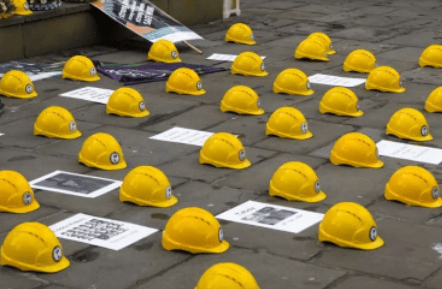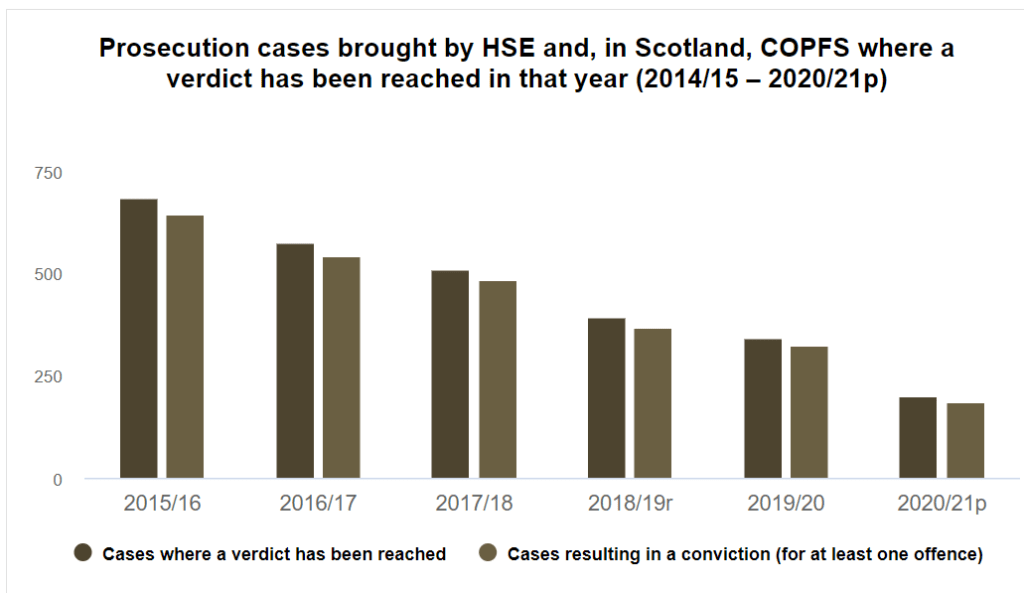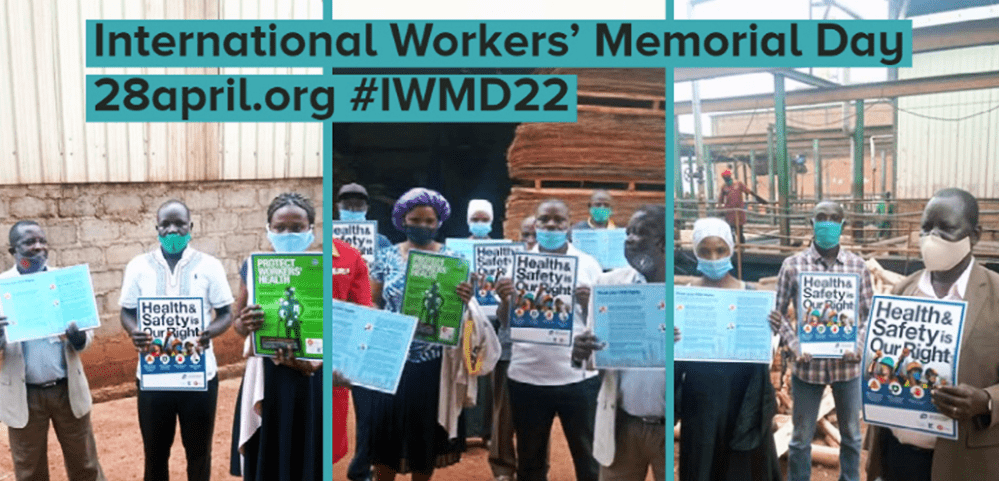Every year more people are killed in their workplaces than in war. International Workers’ Memorial Day, (IWMD) coming just before May Day, is an occasion to mark that toll on the lives and health of workers and to remember that their only defence is to have well-organised and combative trade unions.
IWMD will be marked by rallies organised by trade unions and trades councils all over the country. But it is also an international day and looking at websites of organisations like the International Trade Union Confederation (ITUC) and the International Labor Organisation (ILO) gives an idea of how it is marked across the globe. According to the ITUC secretary-general, Sharan Burrow, in the three years since the ILO Centenary conference, “around 8.1 million people have died as a result of their work and even more now live with life-altering injuries and illnesses.”

“Poor workplace health and safety,” she says, “costs some 2.78 million lives every year”.
“Every ten seconds, someone dies because of lax workplace procedures. Weak or absent workplace protection for huge numbers of workers was a disgrace before the pandemic; it has now become a fully-fledged scandal. This is long overdue, and we call on all governments to meet their obligations to protect workers and members of the public who go into places where people work. This is their fundamental right”
In 2019, the World Health Organization estimated that workplace-related deaths exceed the average annual deaths from road accidents (999,000), war (502,000), violence (563,000) and HIV/AIDS (312,000).
Here in Britain, International Workers’ Memorial Day comes the day after the British government announced that it is to scale back its provision of free Covid testing as part of the ‘Living with Covid’ strategy. As well as running down routine Covid tests, the government is making 40% of the staff of the UK Health Security Agency redundant, to save money.
142 workers killed at work, according to HSE
For those in the care and health sectors, therefore, it is a case of ‘working with Covid’. The government is taking these steps, naturally, despite the opposition of almost all expert opinion in public health and epidemiology. If it costs too much, health and care workers and the wider public can just put up with it and suffer.
But it is little different when it comes to general workplace safety issues. Here are a few key facts from the Health and Safety Executive about workplace safety in Tory Britain in 2020/21:
1.7 m workers suffering from work-related ill health
0.8 m workers suffering from work-related stress, depression or anxiety
0.5 m workers suffering from work-related musculoskeletal disorders
90,000 workers suffering from Covid-19 which is believed to have been due to exposure at work
600,000 workers suffering from work-related illness caused or made worse by the pandemic
400,000 workers sustaining a non-fatal injury
142 workers killed at work
12,000 deaths from lung disease associated with past exposures at work.

Yet while there are still scandalously high levels of industrial injuries and deaths, as the TUC points out, the Health and Safety Executive is missing in action, with a declining number of inspections and prosecutions taking place. No doubt if it weren’t for the labour and trade union movement holding back the tide, the Tories would be adopting a policy of ‘Living with Industrial Accidents’.
There are many declarations, resolutions, commitments, campaigns and publications by international bodies like the ITUC and the ILO, as well as by the TUC here in the UK. But as we mark International Workers’ Memorial Day in our rallies and meetings, we also need to acknowledge that while legal regulations can be of very great value, the most important form of workplace defence is having a strong, combative trade union, with well-trained and active health and safety reps.
Doctors in Unite have an open meeting on International Workers’ Memorial Day, in London (Westminster) at 1.30pm. Or you can send an e-mail message of support, details here.
(Pictures from TUC and ITUC websites)



